Νεα Δημοσιευση στο Αμερικανικό Ηλεκτρονικό Ειδησιογραφικο Πρακτορειο SperoNews. Αυτη την φορα φιλοξενειται άρθρο με τιτλο "Psychological operations at work: Salamis, 480 BC" , του μελους του Συλλόγου μας κου Στεφανου Σκαρμιντζου , σχετικα με τις ψυχολογικες επιχειρησεις που πραγματοποιηθηκαν κατα την διαρκεια της Ναυμαχιας της Σαλαμίνας. Το αρθρο φιλοξενει επισης φωτογραφια ανακατασκευασμενης Ασπίδας μελους του Συλλόγου μας ,της φατριας των Ετεοβουταδων της Αθηνας.
Ακολουθει το Κειμενο:
Psychological operations at work: Salamis, 480 BC
The Persian Admiral seeing the Phoenicians collapsing ordered his reserves to advance. This resulted in more confusion as the ships, due to overcrowding mixed up their oars, thereby giving opportunities to the Greek shipmasters to ram them. Infuriated with anger, Ariabignis tried to bring order into the chaos but as he had no maritime experience, like most Persians, he made the situation worse. Ariabignis suddenly spotted the trireme of Themistocles and ordered his navigator to ram it. He thought that if he killed the Athenian Admiral he would reverse the situation in favor of the Persians.
But Araibignes planned without thinking of the ubiquitous Ameinias, who attacked and rammed the Persian flagship first. Undaunted the Persian Prince ordered his men to seize the ship of Ameinias. He personally led the attack holding in his arms his rich gilded weapons, true to the Persian martial traditions but Ameinias and his sub commander Lykomidissucceeded in stabbing him at a place not covered by his armor and killed him. The death of their leader broke the morale of the Asians and was a key factor to victory.
The next morning the Greeks prepared to fight again. This time Psyttaliaisland was guarded by the Athenians. The fleet was sailing in a sea covered with corpses and broken wood. But there was no enemy on the horizon. They arrived until the moored cargo ships to be used in the assault which Xerxes was preparing against Salamis but they did not find anyone. Only then did they realize the size of their victory. The ships were shaken from the joyful cries of a relieved people. On a trireme from the Attic demos of Elefsina, one marine from the ancient Royal Codridae clan lifted his helmet and looked around. His name was Aeschylus and in his play ‘ The Persians ‘ he left us the most shocking testimony of that terrible day. These people looked at the future with hope and simply wanted only to rebuild their lives. Today we know that with their blood they gave Western Civilization its right to exist!
Stefanos Skarmintzos writes on history and warfare. He resides in Greece.
Sources:
Aeschylus «The Persians» Loeb Classical Library 1914
Herodotus «Histories» Loeb Classical Library 1914
Pausanias «Description of Greece» trn. John Dreyden London: Macmillan, 1889
Plutarch «Themistocleς» Loeb Classical Library 1920
Plutarch «Aristides» Loeb Classical Library 1920
Plutarch «Cimon» Loeb Classical Library 1920
Strabo «Geography» Loeb Classical Library 1920
Kaveh Farrokh: Shadows in the Desert: Ancient Persia at War
Psy Ops in Ancient Greece (2010): Christy Emilio Ioannidou, ”Armies and Tactics” magazine issue 1, “Aegis” publishing, pp 28-35)
Also blog http://perialos.blogspot.com/2011/02/blog-post_07.html (in Greek)
A.R. Burn, Persia and the Greeks. The defense of the West (second edition: 1984 London)
Psychological operations at work: Salamis, 480 BC
The Greeks originally pushed slowly towards the enemy singing the paean “Apollo Savior God” as “Apollo Delphinius” was patron of mariners. As they started to receive projectiles from Psyttalia island, they began rowing backwards but with their prows facing the enemy. The Persian fleet began to move forward with confidence but also facing the first problems as they had to narrow their frontage to get into the space between the Cynosoura and what today is the islet of St George.
The Greeks were no longer retreating, as their flanks were no longer exposed. And they no longer sang the hymn to Apollo. A murmur was raised from the Greek fleet, growing steadily like a threat. A new paean was heard: Forward, children of the Greeks, Liberate the fatherland! Liberate your children, your women, The altars of the gods of your fathers, And the graves of your ancestors: Now is the ultimate struggle!
Those of the Persian fleet, who understood Greek, froze. This was not a simple battle song just to give courage. It was addressed to the press ganged Greeks of the Persian fleet calling for mutiny and insurrection. It was rebuking them for aiding the enemy to desecrate the shrines of the land that was the origin of their forefathers. It certainly tore the heart of the Ionian rowers like a scorched knife! Curses and oaths was the response the Persian officers who might have used whips to prevent potential indiscipline.
On the Phoenician and Carian ships, helpless captives were sacrificed on the prows to woe the gods of the barbarians hoping for their assistance in the battle but also to terrorize their opponents. This was too much for the Athenian trierarch Ameinias fromPallene. He gave orders to his midshipman to hit thecrotala ‘forward full speed!’ and the trireme lunged forward like a wooden torpedo, to the nearest Phoenician ship that struggled with the water currents.
The heavier Athenian trireme shook the Phoenician. Some rowers were impaled from the broken oars and others were mangled. Several Phoenician marines fell into the water and some fell into the gap between decks and crushed. As the rest tried to come to their senses, the Athenian hoplitesinvaded the enemy deck and start killing them.
The sailors of Ameinias charged behind the hoplites with crowbars and axes and started to destroy the enemy’s prow emblem. The Phoenicians tried to surrender but the angered Athenians slew them without second thought. No mercy for the sacrilegious manslayers! The Phoenician ship’s prow emblem fell into the sea, with a splashing sound as if breaking the grip of fear that held tight the hearts of Greeks, demonstrating in this way that the enemy could not break them psychologically.
The sailors of Ameinias charged behind the hoplites with crowbars and axes and started to destroy the enemy’s prow emblem. The Phoenicians tried to surrender but the angered Athenians slew them without second thought. No mercy for the sacrilegious manslayers! The Phoenician ship’s prow emblem fell into the sea, with a splashing sound as if breaking the grip of fear that held tight the hearts of Greeks, demonstrating in this way that the enemy could not break them psychologically.
The Athenians who had suffered the anguish of their initial inability to prevent the enemy from ravaging their land gave way to their indignation by rowing as ever before. Each ship with its ram had become an instrument of vengeance. The Athenians taking advantage of the enemy’s overcrowding, the favorable currents and the vindictive ferocity of their marines began to have the upper hand against their Phoenician opponents. Many ships of the second and third Phoenician battle line after seeing the Athenian marines killing the enemy crews without taking prisoners, panicked and wrecked their vessels on shore of Perama in order to avoid engaging them.
But Araibignes planned without thinking of the ubiquitous Ameinias, who attacked and rammed the Persian flagship first. Undaunted the Persian Prince ordered his men to seize the ship of Ameinias. He personally led the attack holding in his arms his rich gilded weapons, true to the Persian martial traditions but Ameinias and his sub commander Lykomidissucceeded in stabbing him at a place not covered by his armor and killed him. The death of their leader broke the morale of the Asians and was a key factor to victory.
The next morning the Greeks prepared to fight again. This time Psyttaliaisland was guarded by the Athenians. The fleet was sailing in a sea covered with corpses and broken wood. But there was no enemy on the horizon. They arrived until the moored cargo ships to be used in the assault which Xerxes was preparing against Salamis but they did not find anyone. Only then did they realize the size of their victory. The ships were shaken from the joyful cries of a relieved people. On a trireme from the Attic demos of Elefsina, one marine from the ancient Royal Codridae clan lifted his helmet and looked around. His name was Aeschylus and in his play ‘ The Persians ‘ he left us the most shocking testimony of that terrible day. These people looked at the future with hope and simply wanted only to rebuild their lives. Today we know that with their blood they gave Western Civilization its right to exist!
Stefanos Skarmintzos writes on history and warfare. He resides in Greece.
Sources:
Aeschylus «The Persians» Loeb Classical Library 1914
Herodotus «Histories» Loeb Classical Library 1914
Pausanias «Description of Greece» trn. John Dreyden London: Macmillan, 1889
Plutarch «Themistocleς» Loeb Classical Library 1920
Plutarch «Aristides» Loeb Classical Library 1920
Plutarch «Cimon» Loeb Classical Library 1920
Strabo «Geography» Loeb Classical Library 1920
Kaveh Farrokh: Shadows in the Desert: Ancient Persia at War
Psy Ops in Ancient Greece (2010): Christy Emilio Ioannidou, ”Armies and Tactics” magazine issue 1, “Aegis” publishing, pp 28-35)
Also blog http://perialos.blogspot.com/2011/02/blog-post_07.html (in Greek)
A.R. Burn, Persia and the Greeks. The defense of the West (second edition: 1984 London)
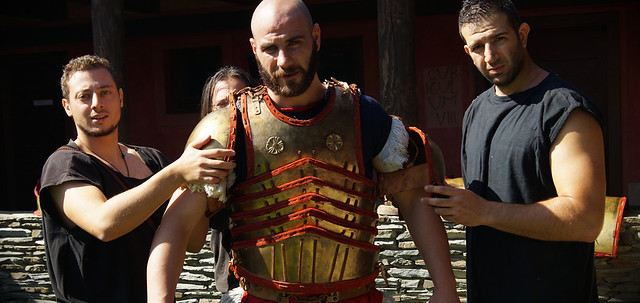
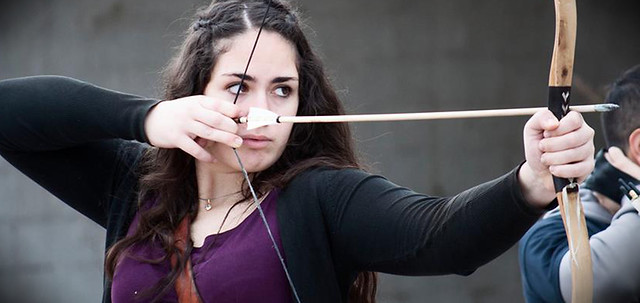
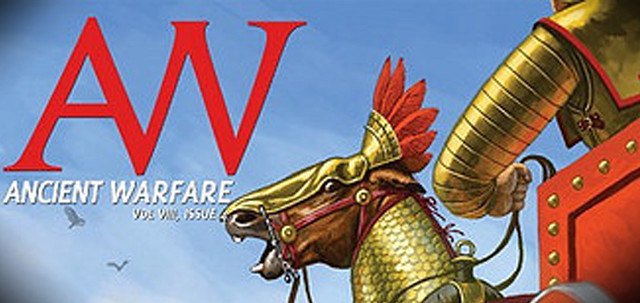
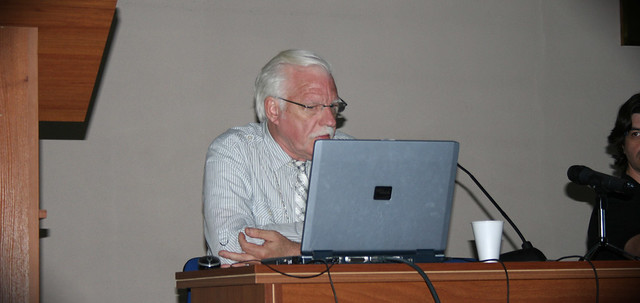
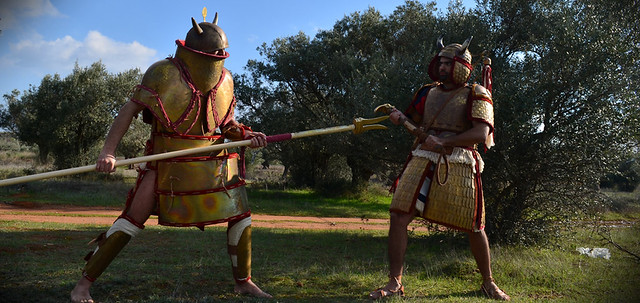
Δεν υπάρχουν σχόλια:
Δημοσίευση σχολίου